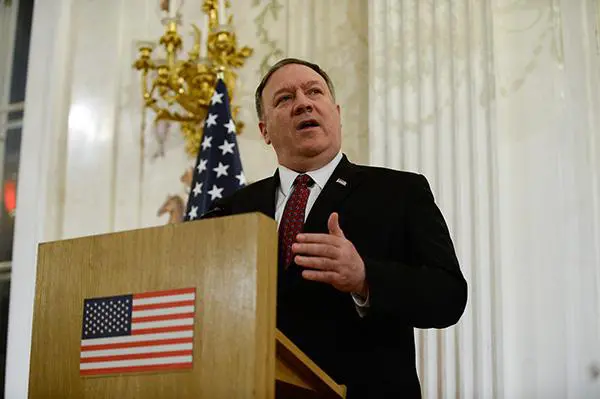An al-Qaida suicide bombing struck a Shiite Houthi protest rally in the Yemeni capital Sanaa on Thursday, killing at least 47 people, the Health Ministry said, hours after the new prime minister quit the post amid threats of mass protests.
The bombing ripped through the Houthi supporters who were gathering at Tahrir Square in downtown Sanaa to prepare for a protest rally against the nomination of newly-designated Prime Minister Ahmed Awad bin Mubarak, who announced his resignation as the Houthi leader, Abdul Malik al-Houthi, called for a mass protest against his appointment.
Witnesses said a suicide bomber detonated an explosive bag at the entrance of the Shiite Houthi gathering at Tahrir Square, which also wounded at least 57 others.
In the meantime, the al-Qaida in the Arabian Peninsula (AQAP) claimed responsibility for the bombing attack against Houthi Shiite rebels in Sanaa, vowing to carry out more deadly attacks in the country.
"Al-Qaida in the Arabian Peninsula carried out its promise, and today we have seen body parts of the Shiite rebels strewn in Tahrir Square," the militants said in a brief online statement. Yet they did not release any details on the suicide bombing operation, but warned people to keep away from the gathering of Shiite Houthi rebels in Sanaa.
The AQAP also claimed responsibility for two other suicide attacks the same day against the army in the southeastern province of Hadramout.
It said they killed 30 soldiers in an attack against an army camp in the coastal city of Mukalla, and another 20 soldiers in a car bombing against an army outpost in the Abar desert area near the borders between Saudi Arabia and Yemen.
Houthi spokesman Ali al-Emad said that such terrorist attacks will not deter the group from continuing its revolt.
Yemeni President Abd-Rabbu Mansour Hadi condemned the terrorist attack against the Houthi protesters in a statement carried by the official Saba news agency. He has ordered an investigation into it.
Despite the explosion, Houthi supporters held the protest rally at Tahrir square but not in large numbers. They vowed to continue their political struggle against the government. The rally, which was called for by the Houthi leader, denounced what it termed as a "foreign guardianship in appointing the new prime minister."
Bin Mubarak turned down his nomination in a statement on Saba late on Wednesday, following a strong opposition by the Houthi rebels who overran the capital on Sept. 21.
Saba said that President Hadi on Thursday accepted bin Mubarak' s decision to quit the post and resumed consultations to nominate a new prime minister.
On Wednesday, Houthi leader Abdul Malik al-Houthi called for mass protests in the capital Sanaa over Mubarak's appointment as the new prime minister, citing "foreign interference" when the president was considering prime minister candidates.
"We received assurances that this name (Ahmed Awad bin Mubarak) was eliminated but right after the meeting with the American ambassador, the name resurfaced," al-Houthi said.
On Sept. 21, the government and the Shiite Houthi group signed a cease-fire deal in Sanaa, both agreeing to stop fighting in the capital, nominate a prime minister within a week and form a technocrat government within a month.
The Houthi group, however, refused to hand over towns and cities seized in previous weeks and has taken over almost all state institutions in Sanaa since then.
The deal empowered the Houthi rebels as it allows the group to play an important role in forming a cabinet and determining the future control of the army.
The peace agreement put an end to the deadly clashes between the rebels and the army supported by Sunni militia. About 400 people, including about 50 civilians, have been killed during the fighting.
After overrunning the capital, the Houthi group has started to deploy fighters in the country's southern regions, where the AQAP was active. The Houthi group clashed with the AQAP several times in the central province of Marib and the southeastern province of Hadramout in late September, which left dozens dead from both sides. Enditem
 简体中文
简体中文



